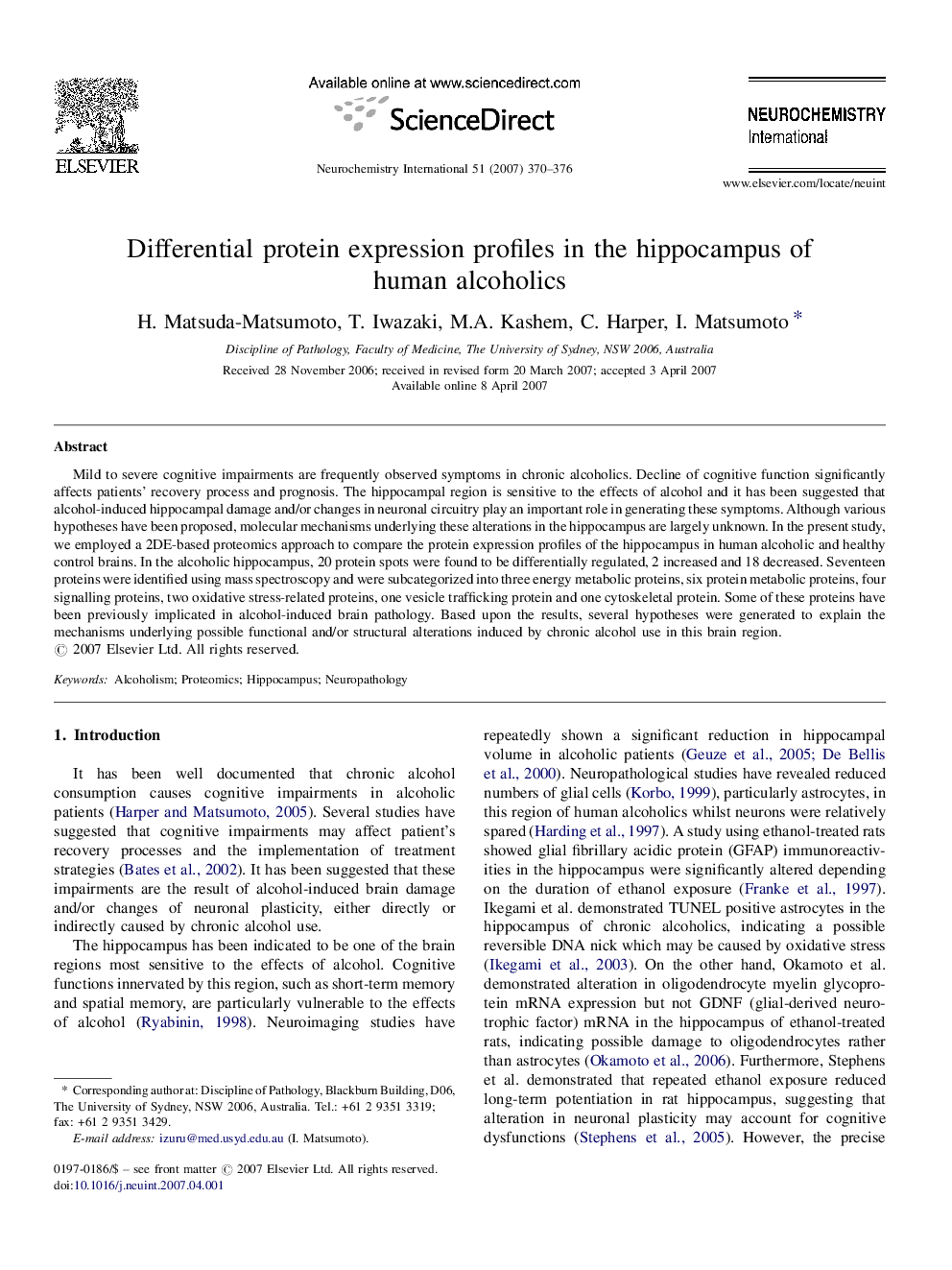| Article ID | Journal | Published Year | Pages | File Type |
|---|---|---|---|---|
| 2201825 | Neurochemistry International | 2007 | 7 Pages |
Mild to severe cognitive impairments are frequently observed symptoms in chronic alcoholics. Decline of cognitive function significantly affects patients’ recovery process and prognosis. The hippocampal region is sensitive to the effects of alcohol and it has been suggested that alcohol-induced hippocampal damage and/or changes in neuronal circuitry play an important role in generating these symptoms. Although various hypotheses have been proposed, molecular mechanisms underlying these alterations in the hippocampus are largely unknown. In the present study, we employed a 2DE-based proteomics approach to compare the protein expression profiles of the hippocampus in human alcoholic and healthy control brains. In the alcoholic hippocampus, 20 protein spots were found to be differentially regulated, 2 increased and 18 decreased. Seventeen proteins were identified using mass spectroscopy and were subcategorized into three energy metabolic proteins, six protein metabolic proteins, four signalling proteins, two oxidative stress-related proteins, one vesicle trafficking protein and one cytoskeletal protein. Some of these proteins have been previously implicated in alcohol-induced brain pathology. Based upon the results, several hypotheses were generated to explain the mechanisms underlying possible functional and/or structural alterations induced by chronic alcohol use in this brain region.
